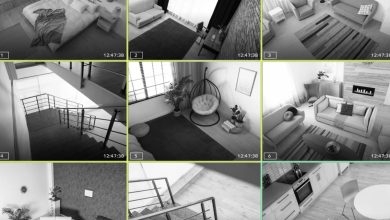No Seat for Me—One Email Turned the Tables

I’m Emma Novak, forty-two years old. At my own company’s awards night, they told me to wait outside—“No need to waste a seat on you,” sneered a colleague. Even the summer intern who’d stolen my idea was seated inside. I gathered my folder, faced him, and said, “Check your email.” Then I walked out. Moments later, the CEO called my name, and the VP chased me down the hall.
It all unfolded in a stifling, over-air-conditioned hotel ballroom—think gaudy chandeliers caked with dust and carpets stained by countless spilled glasses of cheap champagne. That evening was the annual Innovate Corp. Awards Gala, a night when the company lauds its own supposed brilliance.
For three years I had been Innovate’s Senior Data Analyst, a role I clung to with fierce passion. My talent—thanks to an eidetic memory—was spotting patterns where others saw only chaos. I could open a spreadsheet with 50,000 rows of numbers and instantly map out a story, isolate a problem, and sketch a solution. My work kept saving the company millions of dollars and made my boss, Dominic Caldwell, look like a genuine visionary every single quarter.
First Betrayal
Early on, I was almost flattered when Dominic claimed credit for my routing algorithm that saved two million dollars in just three months. I had spent weeks perfecting it, then presented it to him in his glass-walled office. He leaned back in his leather chair, steepled his fingers, and nodded. “Excellent work, Novak,” he praised.
One week later, at the executive board meeting, he stood at the front, delivered my exact slides and data, and watched the all-male board give him a standing ovation. I sat in the back, cheeks burning, as they applauded his “brilliant insight.” Later, walking to a celebratory lunch I wasn’t invited to, he clapped me on the shoulder and whispered, “Team effort,” with a wink that felt like a slap.
Learning to Stay Silent
I told myself it was for the good of the group. That’s what women in corporate America learn—never rock the boat, always be a team player. But my friend Liam Chen, another talented analyst similarly overlooked, saw the truth. After one “team effort” moment, he stared at me over his coffee. “Emma, that was entirely your work. I watched you pull those all-nighters.”
I shrugged. “He’s our manager. It’s his job to present our findings.”
Liam sipped his coffee. “His job is also to lead ethically. Not to plagiarize.”
He was right. But Dominic’s pattern repeated itself: my supply-chain crisis model became his “foresight,” my inventory management system a testament to his “innovative leadership.” My name never appeared. I was the ghost in the machine, making his career soar while I stayed stuck.
The Helios Framework
Then came my crowning achievement: the Helios Framework. For six months—most nights and weekends—I toiled on my home laptop, fueled by coffee and determination. This wasn’t a minor tweak. Helios was a self-learning logistics system, powered by machine learning, that adapted in real time to shipping delays. It was revolutionary.
My heart pounded when I brought it to Dominic. He scrolled through the code and data in silence. I thought, Finally, something he can’t steal—it’s too intricate.
He looked up with a slow, oily smile. “This is impressive, Emma,” he purred. “But it’s a bit rough around the edges. I think it needs fresh eyes before we show it to the board.”
The Hand-Off
The very next morning, he introduced Ren Mallerie—twenty-three years old, the CEO’s niece, fresh from a top business school, with a designer handbag worth more than my car. Ren had landed a cushy “special projects” internship. “She’ll assist you with Helios,” Dominic announced. My project, supposedly “team-based,” was effectively handed over to her. I felt my stomach drop.
Watching My Work Disappear
Over the next week, Ren took center stage. She presented a dumbed-down version of my slides in front of the VP of Operations. When asked a simple question about the data sources, she blinked and said, “Oh, Dominic helped me with the technical bits. I focused on the big picture.” Dominic leaned in. “Ren’s vision drove this project, from day one.”
The CEO beamed. “That’s my girl.” I sat frozen, fists clenched under the table, unable to speak.
Two days later, the company email arrived: nominees for the Innovate Corp. Innovation Excellence Award. There it was in black and white: Ren Mallerie—for the Helios Framework.
Fighting “Properly”
Shaking with anger, I scheduled a meeting with HR. I marched in clutching a binder stuffed with my original drafts, time-stamped files, and email chains proving my authorship. The HR manager, Ms. Parker, sat behind her spotless desk, her practiced smile plastered in place.
When I finished, she leaned back. “Emma,” she said, voice dripping with corporate condescension, “Dominic is your department head. We trust our managers to allocate work and credit properly. Perhaps this is just a misunderstanding about team collaboration.” She offered me one of those empty smiles. “Please trust our process.”
That “process” was a sham. I left her office, took the elevator down, and went home. That night, instead of tears, something cold and clear settled in my chest—an unwavering resolve. If the system was rigged, I wouldn’t fix it. I would dismantle it.
Project Phoenix Takes Flight
I built an encrypted folder on my personal laptop and named it “Nexus Paradigm.” Then I created a private chat group on a secure messaging app. I invited Liam first, then six other brilliant colleagues—programmers, logistics experts, senior engineers—each one exploited by Innovate Corp. We called ourselves “Project Phoenix.” My first message: “It’s time. Who’s in?”
They replied instantly: “In.” “100%.” “Tell me what to do.” “I’ve been waiting for this.”
Over the next two weeks, we moved in secret. I hired a top patent lawyer to file our patents quietly under my name—for the revolutionary modules of Helios that I’d created at home. We drafted discreet letters of intent from four major clients fed up with Innovate’s service. We prepared a lean, honest pitch deck and secured a term sheet from a venture capital firm.
On the eve of the awards gala, I wrote one final email. Eight attachments: my resignation letter and those of the seven other Phoenix members, the letters of intent, our patent application for “Nexus,” and a press release announcing Nexus Paradigm—a new company founded by Innovate’s real innovators.
Liam texted: “Whatever happens tomorrow, we’ve got your back.”
The Awards Night
At the ballroom entrance, Renata, the marketing director, blocked my path. “You can wait outside,” she said coolly. “No seat for you.”
Behind her, I saw my team at a big table, and Ren smirked at me. “Why would we save a seat for you?” she whispered.
In that moment, I wasn’t the scared analyst anymore. I pulled out my phone, opened the email in my outbox, and hit Send. It was like setting off a bomb.
“Check your email,” I told Ren, voice steady. Then I walked away toward the elevators.
Instant Fallout
Inside the ballroom, I heard the first ping of a new message—then another, and another. My digital Symphony of Chaos had begun. As I stepped into the elevator, the doors swung open again. The CEO, Mr. Harrison, burst in, pale and breathless. “Emma!” he cried. “Please, wait!”
The elevator doors shut, and I watched his face through the glass. My phone buzzed again—this time from the VP, Claire Rodriguez, racing to catch up. But I was already driving out of the hotel, my heart racing with triumph.
Aftermath and New Beginnings
Innovate’s stock plunged as news of the exodus and client defections broke. Nexus Paradigm launched in a cramped co-working space, fueled by sheer determination. Within six months, we had solid contracts and growing revenue.
I received an email from Mr. Harrison offering to buy us out and restore my old job with a promotion. I printed it and pinned it above my desk. My team cheered and celebrated our freedom.
I replied to his offer with two words: No, thank you.
One Year Later
Today marks one year since I was told to wait outside. I stand backstage at the industry’s largest tech conference, ready to give the keynote. The auditorium hums with anticipation. I step up to the podium, lights bright, and begin my story.
I close with the lesson I learned:
“The most powerful seat at the table isn’t the one others save for you. It’s the one you build yourself.”
Share.










